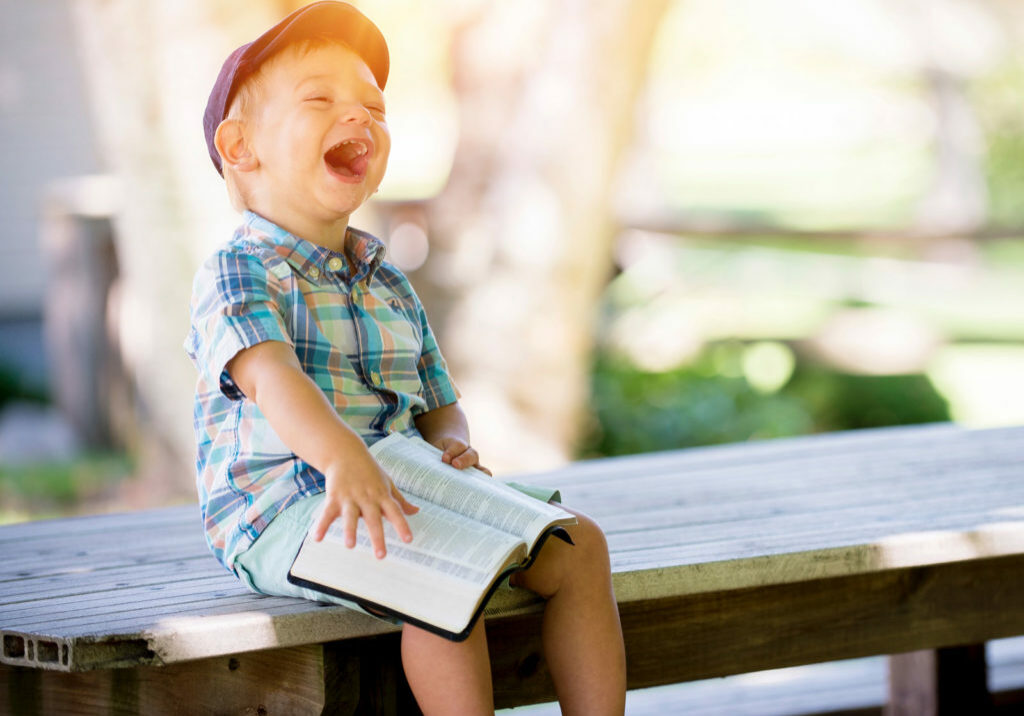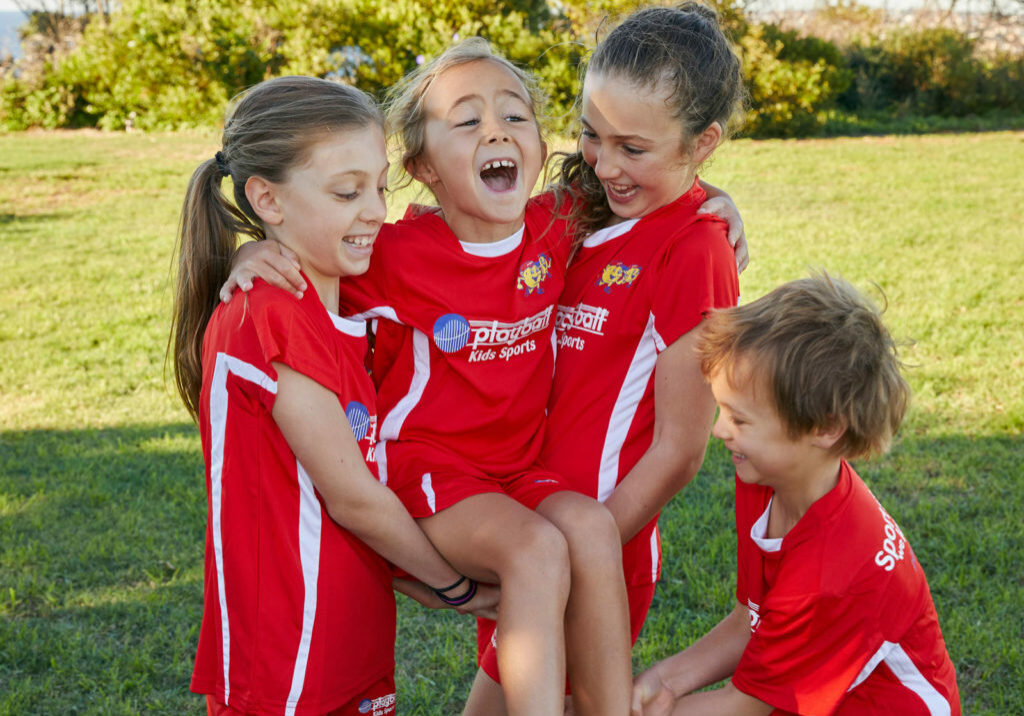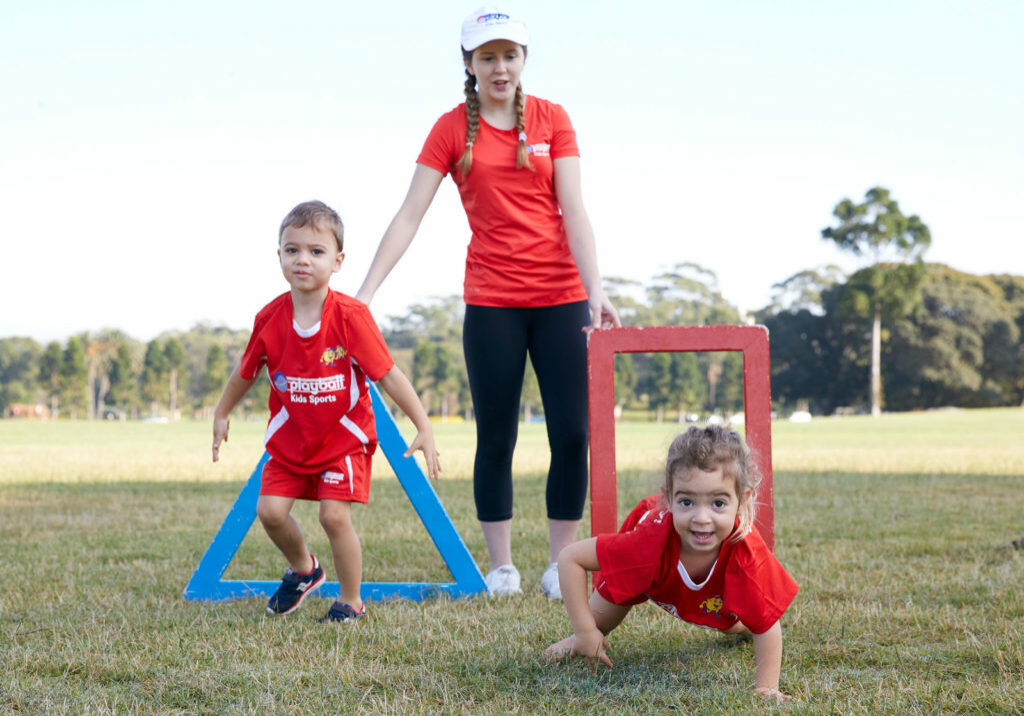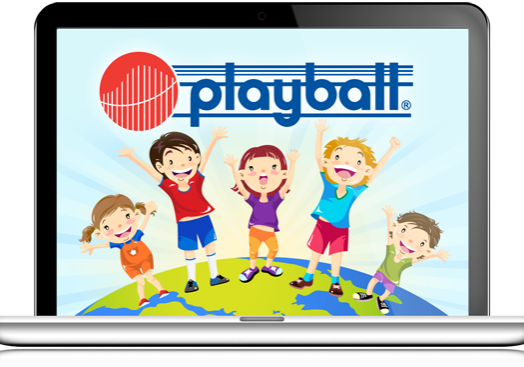Having happy, content and successful children is at the top of the list for Australian Parents – but what is the secret to creating opportunities for our children to thrive emotionally and academically in an ever-changing world? Lisa Statham explores the balance between a child’s social and emotional development and education using physical activity as a powerful tool in nurturing ‘the whole child.’
What do you want to be when you grow up? From the very moment a baby is born we feel an overwhelming sense of protection and responsibility for their future. No matter what the balance is, of nature over nurture, one thing is for sure – “we all want our children to be who they want to be and reach their full potential.” We want our children to know who they are and have a strong sense of belonging, so they can conquer their goals and chase their dreams.
Physical activity programs such as “Playball” can be used as an effective tool to boost a child’s self- esteem through developing skills, interacting with others and forming friendships. Key values such as honesty, teamwork, fair play and respect fall hand in hand within sports and are qualities children should be carrying forward into all aspects of life. It is essential that children have as many opportunities as possible to form foundations from which subsequent learning can develop.
Educators and parents often see a divide between sport and academic work, however ironically sport can be the very thing needed to boost performance in the classroom. “Playball” is more effective because it is guided by the National Quality Framework and its Outcomes, therefore each activity coincides with what children need to be learning as part of the curriculum. It scaffolds children’s learning in ways that are easy, fun, and most importantly inclusive.
Each child is encouraged to develop skills at their own pace in a safe, positive and happy environment.
Through working with trained professionals, children are guided into a space where differences in ability are celebrated and connections with others are nurtured. In physical activity programs like this, it becomes apparent that if a child is effective in forming relationships with others, then they are much more likely to be well equipped with the skills needed to learn new concepts and explore new ideas.
The qualities children can obtain through taking part in sports programs transfers into the classroom in a myriad of ways. Active children are generally more motivated in character, which is a key attribute when taking on new challenges within education. This can result in direct links to fewer discipline problems and improved learning outcomes- a welcome consequence for our hard- working teachers and directors.
To achieve a broader outlook in education, sports programmes must focus on the development of the individual, not only on the development of specific sports skills. Nurturing ‘the whole child’ is vital if we are to create a balance between social and emotional wellbeing and academic success. “Playball” is a program which complements a child’s desire to create and fulfil their goals, through learning and working with others. It’s important to remember the basics of learning- no child is born with the ability to throw or catch a ball, just as no child is born with the ability to read or write. All new skills are part of a process and must be practised over and over before they can be mastered.
Playball gives children the opportunity to practise something new and to feel a satisfying sense of achievement and pride once they have mastered it at their own level and in their own time.
When children “have a go” – be it writing a sentence for the first time or kicking a ball on target- they are developing a risk- taking approach to learning, which is key to pushing boundaries and applying knowledge. If children are to be risk takers then they need the key to learning- confidence. Playball is a World Class Coaching System which helps to instil this confidence in happy young learners. We need to give our children the tools to reach their full potential so that they can make a difference in their world and have the confidence and ability to fulfil their dreams.
By Lisa Statham






